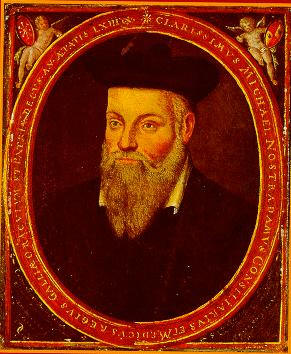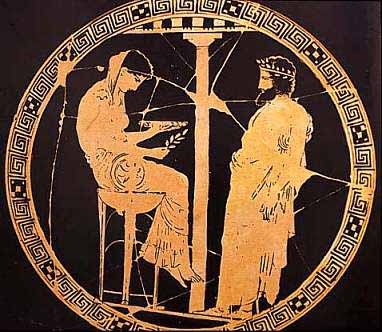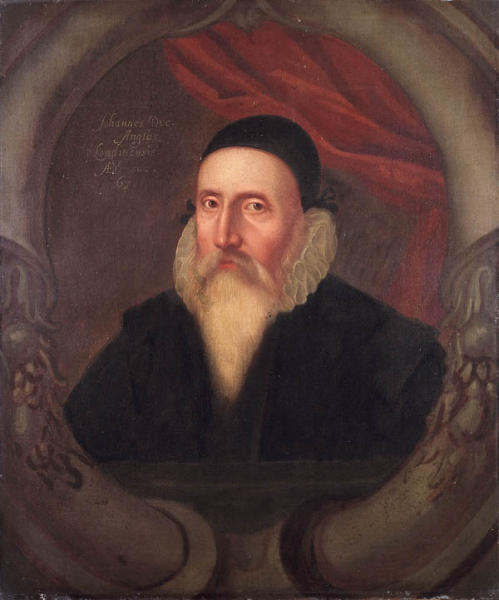Famous Psychics Throughout History
Learn about psychics who have made their mark on world history
Interest in psychic powers has hit an all time high. You can watch dramas and films about psychics on TV or read real life psychic stories in books and magazines. Pick up the phone or click on the internet and you can have an instant personal reading. Curiosity about psychics has thoroughly permeated modern culture, opening people's minds to the possibility of extrasensory perception.
But this increased acceptance is a recent happening because just a few hundred years ago being psychic might have cost you your life. Claiming to have a psychic gift could have earned you a public burning at the stake courtesy of religions that saw second sight as a threat to their power. Even during the 20th century, admitting to psychic powers might have meant you were consigned to a mental health hospital.
Despite the danger, psychics have played a prominent role throughout human history. From the shaman passing on spirit messages to his tribe, to prophets consulted by leaders on the eve of battle, to seers advising kings and queens on political strategy, to celebrities seeking psychic guidance on love affairs: people with psychic powers are recorded throughout the world. Below are some of the most famous psychics who have left their mark on history.
Famous Psychics Throughout History
Biblical Prophets
Numerous examples of psychic communication exist in the Bible, commonly through dreams, visions or angelic messages. Psychics in the Bible are referred to as 'prophets' and those deemed 'acceptable' are said to receive their information from God. However, the Bible castigates others, which led to the later persecution of psychics.
Daniel: interprets dreams for the Persian King and has visions about the future of the world.
Deborah: according to the Bible she receives messages from the creator and puts these instructions into action.
Joseph, son of Jacob: has prophetic dreams and is adviser to the king of Egypt.
Mary, mother of Jesus: is given a message by an angelic visitor.
The Oracle of Apollo at Delphi (8th century BC - 4th century AD)
Arguably the most famous and longest continuous source of psychic information ever recorded. The Delphic Oracle was in existence for more than a thousand years, until the newly Christianised Rome banned it in the 4th century.
Delphi is a town in mainland Greece which had been known as a sacred site since prehistoric times. The ancient Greeks dedicated it to the god Apollo. In his temple at Delphi, Apollo was said to foretell the future through his priestess, called the Pythia, whose name comes from the legend of Apollo slaying a giant python. The python's body was said to have fallen into a deep fissure over which Apollo's temple at Delphi was built. The grisly tale says that the fumes from the rotting python caused Apollo's priestess to enter a trance-like state from which the god would speak through her. The priestesses were a succession of local women chosen from all levels of society.
The Oracle was renowned throughout the ancient world and was consulted by kings and rulers before political decisions, as well as by ordinary people.
The teachings of the Oracle were recorded by some of the best known classical writers. Perhaps the most famous wise words from the Oracle are, 'Know thyself'.
Cassandra (1200 years BC)
A mythological figure who may have been based on a real woman. She was given the gift of prophecy by Apollo who promptly cursed her with never being believed, when she refused to become his lover.
Daughter of King Priam of Troy, Cassandra repeatedly warned her people about the danger of invasion from Greece - but because of Apollo's curse nobody listened to her and Troy fell. Her divine gift caused her to go mad and she met a sad end.
Cassandra Complex is now a term used for experts who predict difficulties in environmental, political or business matters but who are not heeded until their dire predictions come true.

Nostradamus (1503 – 1566)
Michel de Nostredame made his psychic predictions almost 500 years ago, yet he is still quoted by the popular press today and his book of prophecies has seldom been out of print.
During his life the French occultist lived under constant fear of execution for his prophetic writing but he escaped the grips of the Inquisition because his text was not deemed heretical. He found royal favour, being asked to produce predictions and horoscopes for the wife of the King of France and the royal children.
Nostradamus has been credited with predicting major world events, such as the French Revolution, the defeat of Napoleon, the rise of Hitler, the atomic bomb and the attacks of September 11, 2001.
Nostradamus rejected the title of 'prophet' for himself, and critics say he borrowed heavily from other sources for his predictions. But he continues to be known worldwide for his psychic insight.
Mother Shipton (1488–1561)
She was a diviner from Knaresborough in Yorkshire who experienced paranormal activity from childhood. Her gift for psychic prediction was evident from an early age and people came to visit her from around the country to ask for her insight.
She is said to have prophesised the English Civil War, the dissolution of the monasteries, the great fire of London and the defeat of the Spanish Armada.
Interestingly, her prediction:
'Around the world thoughts shall fly,
In the twinkling of an eye.'
Could predict the existence of the Internet! Many historians think Mother Shipton was a mythological character, created from the personalities of several village wise-women. But writings from the decades after her death insist she was a real person.
John Dee (1527 – 1608)
A man who was interested in both magic and science, he had a keen interest in alchemy and divination. Queen Elizabeth I consulted him many times throughout her reign. Dee specialised in scrying, a method of looking into a reflective surface to see the future. He attempted contact with angelic beings in the hope of advancing humanity's spiritual knowledge.
Helena Blavatsky (1831 - 1891)
A Ukrainian-born occultist who founded the Theosophical Society, aiming to explore psychic ability. She experienced psychic visions from childhood, and was the centre of paranormal activity.
Edgar Cayce (1877 - 1945)
Had the ability to put himself into a trance from where he was able to answer questions on a diverse range of subjects. He could answer specific queries relating to the person he was reading even though he seldom met them. Cayce offered predictions on health, past lives, future predictions, business advice, and dream interpretation, among other subjects.
Cayce claimed not to remember what he had said during readings; he believed the information was coming from his subconscious. His wife recorded his readings, making Cayce the best documented psychic of the 20th century.
He never expected his subjects to blindly believe in his advice; instead he encouraged them to test his predictions.
Submit A Comment
Create a Psychic Sofa account today!
Join the Psychic Sofa Community Today and get access to:
- Get notified by (FREE) SMS text when a reader becomes available!
- Latest offers and members only exclusives
- Add favourite readers to your profile






Comments
No comments have been made yet